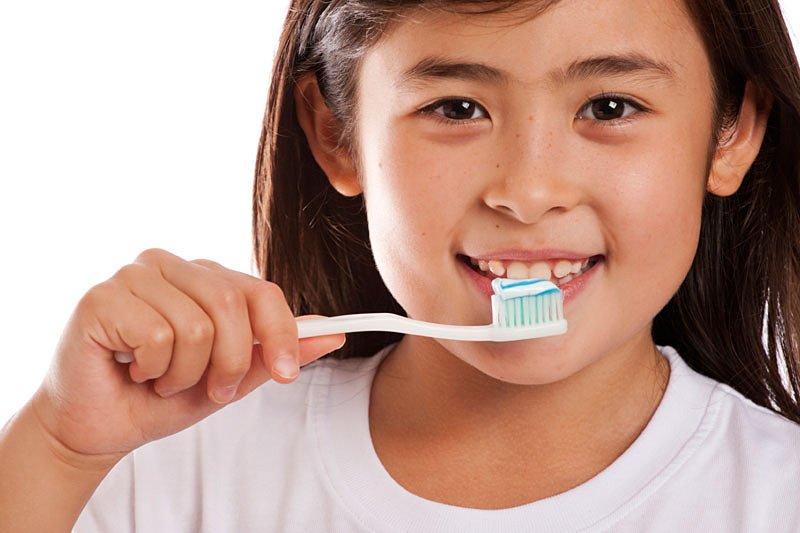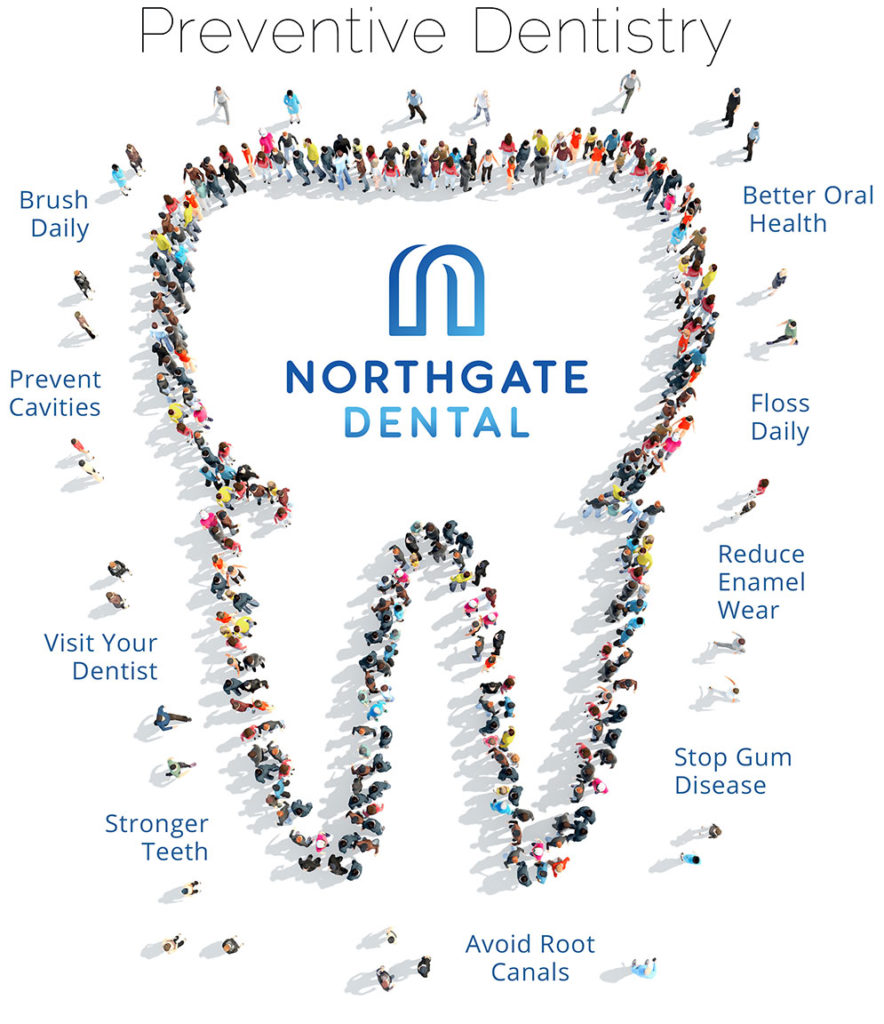2019 Dental Health Resolutions That Will Make You Smile
People are already making new year resolutions like saving money, eating better, or starting a new business. Why not make one of your new year’s resolutions improving your dental health? Taking good care of your mouth, teeth and gums is a worthy goal in and of itself. Good oral and dental hygiene can help prevent bad breath, tooth decay, and gum disease — and can help you keep your teeth as you get older lessening the chance of expensive replacement procedures. Understanding the importance of oral health and its connection to your overall health is our goal at Northgate Dental. Here are some strategies that if followed will give you a brighter, healthier smile in the coming year.
Cut Back on Sugar
 Your body is a complex machine. The foods you choose and how often you eat them can affect your general health and the overall health of your teeth and gums, too. If you consume too many sugar-filled sodas, sweetened fruit drinks or non-nutritious snacks or meals, you could be at risk for tooth decay. Tooth decay is the single most common chronic childhood disease, but the good news is that it is entirely preventable by applying regular dental checkups and proper brushing and flossing. Tooth decay happens when plaque comes into contact with sugar in the mouth, causing acid to attack the teeth. Cutting down on sugar will help improve your dental health, giving you stronger, healthier teeth.
Your body is a complex machine. The foods you choose and how often you eat them can affect your general health and the overall health of your teeth and gums, too. If you consume too many sugar-filled sodas, sweetened fruit drinks or non-nutritious snacks or meals, you could be at risk for tooth decay. Tooth decay is the single most common chronic childhood disease, but the good news is that it is entirely preventable by applying regular dental checkups and proper brushing and flossing. Tooth decay happens when plaque comes into contact with sugar in the mouth, causing acid to attack the teeth. Cutting down on sugar will help improve your dental health, giving you stronger, healthier teeth.
Eat Better
Eating well is important for your dental health. Poor nutrition can affect the entire immune system, increasing susceptibility to many common oral disorders, including gum (periodontal) disease. Antioxidants and other nutrients found in fruits, vegetables, legumes, and nuts improve your body’s ability to fight bacteria and inflammation, helping to protect your teeth and gums. In addition, crisp fruits and raw vegetables like apples, carrots, and celery help clean plaque from teeth and freshen breath.
Stop Using Tobacco
Using tobacco can harm your mouth in a number of ways, increasing your risk for tooth discoloration, cavities, gum recession, gum disease, and throat, lung, and oral cancer. Smokers are about twice as likely to lose their teeth as non-smokers. It’s not just smoking tobacco that has negative effects on your oral health: use of smokeless tobacco can be just as harmful to your oral health. The good news is that the risk of tooth loss decreases after you quit smoking or using smokeless tobacco.
Limit Alcohol Consumption
 You may already know that excessive alcohol intake can have an effect on your overall health, but did you know that it may also affect your oral health? According to the Academy of General Dentistry, those who smoke, eat poorly and consume excessive alcohol also have increased gum recession (periodontal pocketing). Their studies show that smokers who regularly consume alcohol are less likely to brush their teeth on a regular basis and are less concerned about their basic health than nonsmokers. And for you wine drinkers, wine clings to and stains the plaque in your teeth, so brush it away before you drink to decrease your chances of a wine-stained smile.
You may already know that excessive alcohol intake can have an effect on your overall health, but did you know that it may also affect your oral health? According to the Academy of General Dentistry, those who smoke, eat poorly and consume excessive alcohol also have increased gum recession (periodontal pocketing). Their studies show that smokers who regularly consume alcohol are less likely to brush their teeth on a regular basis and are less concerned about their basic health than nonsmokers. And for you wine drinkers, wine clings to and stains the plaque in your teeth, so brush it away before you drink to decrease your chances of a wine-stained smile.
Brush Twice and Floss Once
Brushing and flossing every day protects your teeth from decay and gum disease, which is caused by your teeth’s most persistent enemy, plaque – a sticky, colorless, invisible film of harmful bacteria that builds up on your teeth. Both brushing and flossing are equally important for good oral health. According to the Academy of General Dentistry, only flossing can remove plaque from between teeth and below the gumline, where decay and gum disease often begins. Because diseases of the mouth can affect the rest of your body, it is especially important to maintain good oral health.
See Your Dentist for Regular Checkups
By seeing your dentist at least twice a year, you can help prevent any dental health problems before they cause discomfort or require more comprehensive or expensive treatment. Regular visits allow your dentist to monitor your oral health and recommend a dental health regimen to address areas of concern. There’s no time like the present to take control and ensure that your teeth will be beautiful, healthy and strong for years to come. If you’d like to discuss your family’s oral health please contact us at Northgate Dental. We will be happy to help you with any advice we can. Or if you prefer, request a dental appointment instead and we’ll provide a free consultation. As always, our practice is built around your smile. So let us know how we can help.








